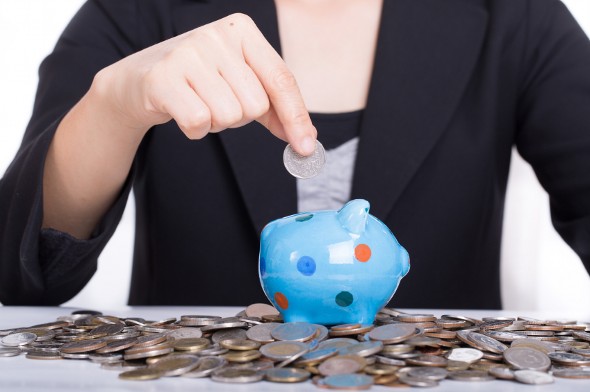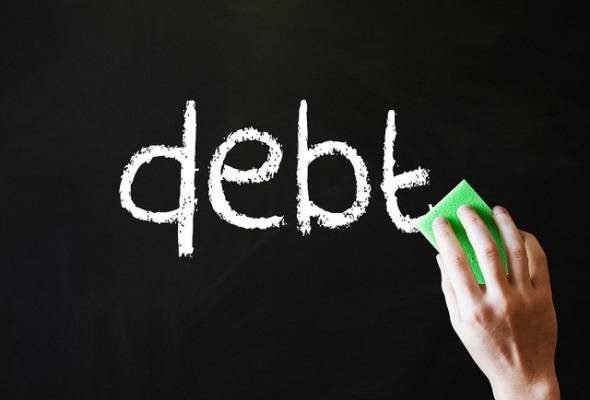If you’re tired of carrying around a mountain of debt, you need a plan to get rid of it once and for all. Deciding which one to tackle first can be a challenge but you it’s beneficial to cross them off your list in the right order. Here are a few tips to consider when choosing the most effective strategy to pay off your debt.
Check out our refinance calculator.
Calculate What Your Debt Is Costing You
Some types of debt are more expensive than others. If you’re forking over hundreds or even thousands of dollars in interest each month, it can be nearly impossible for your debt pay off plan to gain any traction. Paying down the accounts with the highest interest rate first allows you to save money in the long run since you’re knocking out the most expensive debts first.
Related: The Best Balance Transfer Credit Cards
If you’re planning on attacking your highest-interest debts first, there are a few things you’ll need to keep in mind. It’s likely that more of your payment is just going to interest rather than the principal balance. This means just paying the minimums isn’t going to cut it. If you really want to attack the debt, you need to throw as much money as you can towards it each month, especially if your balance is high.
You also need to think about how much money you’ll be able to put towards your other debts. You need to at least be able to pay the minimums on everything else. If you have several high-interest debts at the same rate, you’ll need to decide which one you want to eliminate first. You could base your decision on the balance of each debt or just choose the one that you’re most desperate to pay off.
Knock Out the Smaller Balances First

Paying off your credit card debts according to the interest rate is a smart move, mathematically speaking, but can take longer to reach your first repayment milestone. The longer you’re paying on your debts, the more likely you are to get frustrated with the process. If you need to be motivated to stay on the path to debt freedom, paying down the smallest balances may be your best bet.
Related: The Best No Fee Credit Cards
When you’re dealing with multiple debts, trying to pay off all of them can be overwhelming. Being able to knock out a few smaller bills right away can build your confidence and give you the push you need to stick with your debt repayment plan. Once you get all the little debts out of the way, you can decide whether you want to keep paying your debts based on the balance or switch to paying the highest interest one first. The important thing is to get on a debt payoff plan that works for you and that will help you get out of debt fast.
Good Debt vs. Bad Debt
Debt can take many different forms. Understanding the difference between good debt and bad debt can influence your repayment strategy. Generally, good debt is anything that has a relatively low-interest rate and is secured to some to the type of property. Home loans, for example, are typically considered good debt since you’re buying ownership into something tangible. Student loans could also qualify as a good debt since they tend to carry relatively low-interest rates and you’re investing in your education.
Bad debts generally aren’t tied to any property and they tend to carry much higher interest rates. Credit cards, payday loans, car title loans and high-interest unsecured loans could all be considered bad debts. If you owe a mix of both good and bad debt, you want to make sure that you pay off the ones that are costing you the most money first. Once you ditch the bad debts, you can toss the extra money towards the ones with lower interest rates.
Sticking With the Plan

Regardless of which debt repayment strategy you choose, the key to success is sticking with it. Once you decide on a payoff plan, it’s helpful to map it out on your calendar so you know when each one will be completed. This allows you to keep track of your progress and it also keeps you motivated to reach the next target on your list.
Giving yourself a small reward every time you pay off a debt provides a much-needed boost. Have a friend or your spouse act as an accountability partner can help you stay focused. With a little patience and perseverance, you’ll be doing the debt-free dance before you know it. Paying off credit card debt is tough – but worth it.
Update: Have more financial questions? SmartAsset can help. So many people reached out to us looking for tax and long-term financial planning help, we started our own matching service to help you find a financial advisor. The SmartAdvisor matching tool can help you find a person to work with to meet your needs. First you’ll answer a series of questions about your situation and goals. Then the program will narrow down your options from thousands of advisors to three fiduciaries who suit your needs. You can then read their profiles to learn more about them, interview them on the phone or in person and choose who to work with in the future. This allows you to find a good fit while the program does much of the hard work for you.
Photo credit: Images_of_Money, ©iStock/Matt_Brown, ©iStock/Hin255
